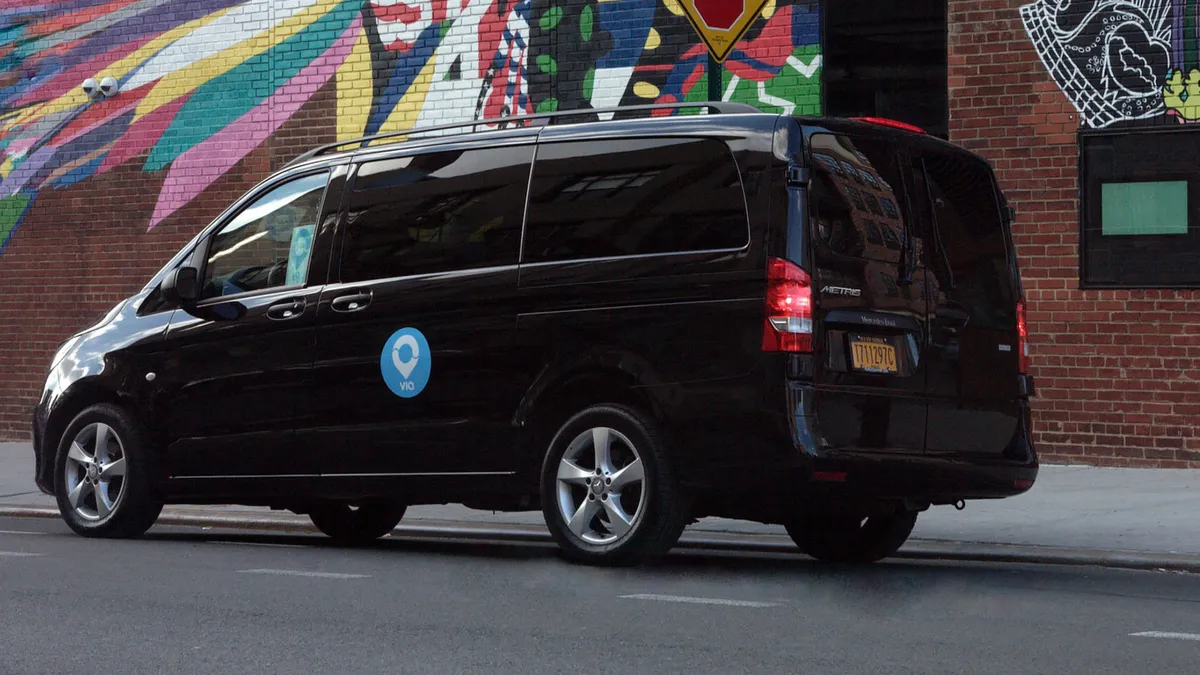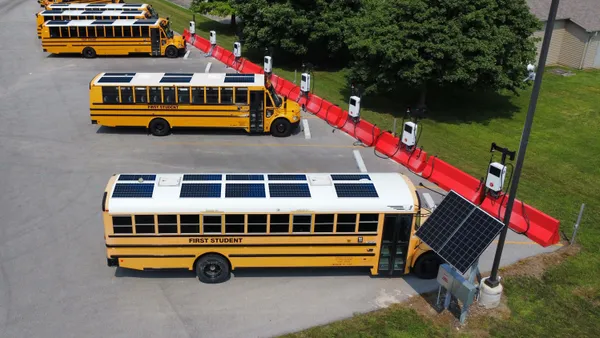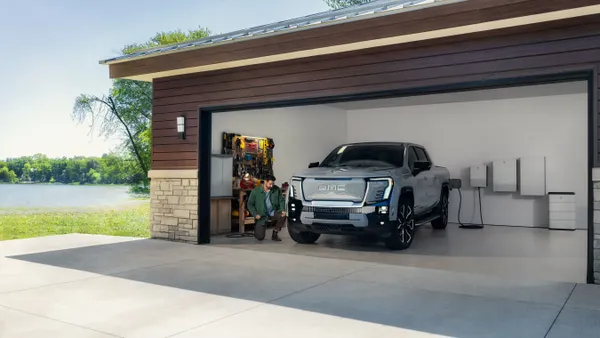Dive Brief:
- Mobility company Via is considering expanding beyond its on-demand transit services into the electric scooter-sharing realm, according to TechCrunch.
- Via CEO Daniel Ramot said at the TechCrunch Disrupt Berlin event that his company already is in talks with the city of Sacramento, CA about the possibility of launching e-scooters there.
- The company would only add scooters in cities where it already has a presence. Via has public shuttles in Chicago, New York City and Washington, DC in addition to partnering with municipalities including Los Angeles for microtransit services.
Dive Insight:
Via is the latest in a string of mobility companies — namely ride-share companies — expanding into other forms of transportation. Lyft ignited the trend toward integrated transportation options with its acquisition of bike-share company Motivate this summer. It has since grown its non-rideshare offerings, just last week announcing that it would triple the size of New York's bike-share over the next five years. Uber has also made headlines for its activity in the bike- and scooter-sharing industry, most recently hinting at a potential acquisition of Bird or Lime.
The transportation integration trend reflects the recognition that consumers increasingly want their products and services to have two dominant characteristics: convenience and choice. Providing a variety of mobility services offers both and lets citizens choose their most convenient, cost-effective way of getting around urban areas.
If Via does launch a scooter fleet, it would be a bit different from other companies' programs. E-scooter companies such as Bird and Lime take the approach of releasing a lot of e-scooters in multiple cities all at once. Sometimes the companies work with municipalities to devise a mutually agreeable program, and other times they simply release the vehicles without permission, much to the ire of city leaders.
Via's stated approach for its proposed fleet is different in that it would reportedly initially only release vehicles in cities where it already has a presence with its other mobility services. Such an approach could garner a more positive response from the communities in which Via operates because they already know the company and its services, rather than just releasing dozens or hundreds of vehicles into a city without first having brand loyalty. Because Via only operates in a few cities so far, it will also have the ability to better cater each scooter pilot program to individual communities instead of forcing a one-size-fits-all model onto dozens of cities all at once.











